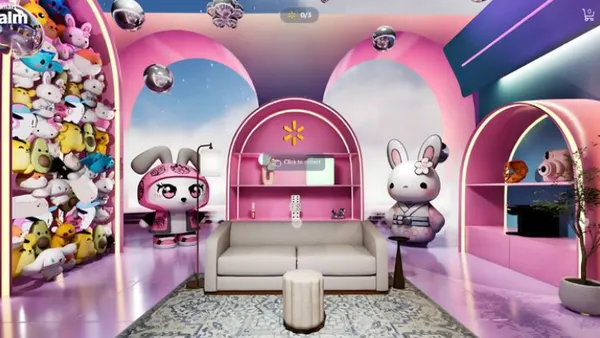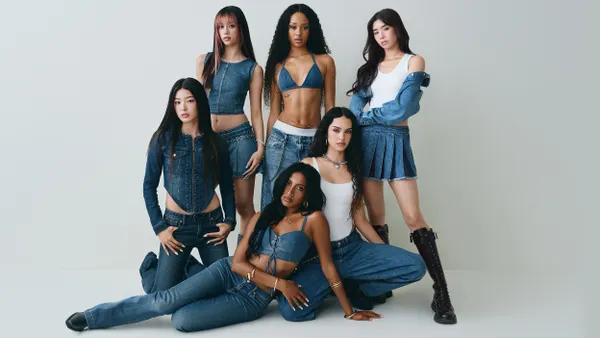Dive Brief:
-
Starbucks recently opened Starbucks Reserve Roastery in Shanghai, which in addition to being its largest so far and the first in China, is also the first Starbucks location to offer customers an immersive in-store augmented reality experience, according to a company press release.
-
The in-store AR experience was created under Chinese e-commerce giant Alibaba and involves a special smartphone app that allows customers to walk around the 30,000-square-foot store and roastery using AR features to view information, such as how a copper roasting cask works. The app also allows users to unlock virtual badges. Store visitors who don’t have the app can use their smartphones to scan QR codes located around the store to view additional information not otherwise on display.
-
The experience extends to Alibaba’s online marketplace, Tmall, where shoppers can purchase merchandise and whole bean coffee for home delivery, or register for specially curated coffee tasting experiences, according to the company.
Dive Insight:
Starbucks has long been a leader in mobile technology and new initiatives are viewed as a roadmap for other retailers. From mobile order features to digital payment options, the company has been first to capitalize on new mobile in a big way.
And now, Starbucks has turned its attention to AR.
Starbucks has been experimenting with AR technology for several years, but only in the last year or so have AR technology capabilities caught up with retailers' ambitions. Starbucks is also experimenting with virtual reality content capable of transporting viewers to a coffee farm in another country, according to Geekwire. With recent advances in AR and VR, Starbucks may lay more of its technology strategy cards on the table.
This app is a bit a different from some of the other AR retail apps in use, and not only because it is meant to be used in-store. Many previous retail AR apps — such as Anthropologie's — focused on capabilities integrated into the sales and marketing process. This feature appears designed to help customers feel more confident about the purchases they are considering.
It includes a digital menu and through AR, shares details of the coffee bars and brewing methods, as well as other not-to-be-missed unique online and offline experiences. Each step of the way, customers unlock a virtual badge and once all badges are earned, they receive a custom Roastery filter to commemorate the moment and share on social media. The experience is powered by Alibaba Group’s scene-recognition technology.
While there certainly is value in purely experiential apps — look no further than Pokemon Go — but for retailers, such apps can also increase brand engagement. If the goal is to have customers buy something, but also stick around for a while — and a giant coffee house with its own roastery and a 3D-printed tea bar seems designed with that goal in mind — then this sort of app fits right in. Starbuck's has a few more roasteries planned over the next two years, and we'll be watching to see if this AR app is part of those projects.
It's still a bit hard to imagine the average Starbucks customer wanting to use the app. Instead, it's more likely to draw the attention of coffee enthusiasts. However, if the experience proves to be popular, Starbucks could show a way forward for restaurants, brewpubs and other retail-like operations that want to strengthen their bond with customers by giving them a glimpse behind the curtain.













